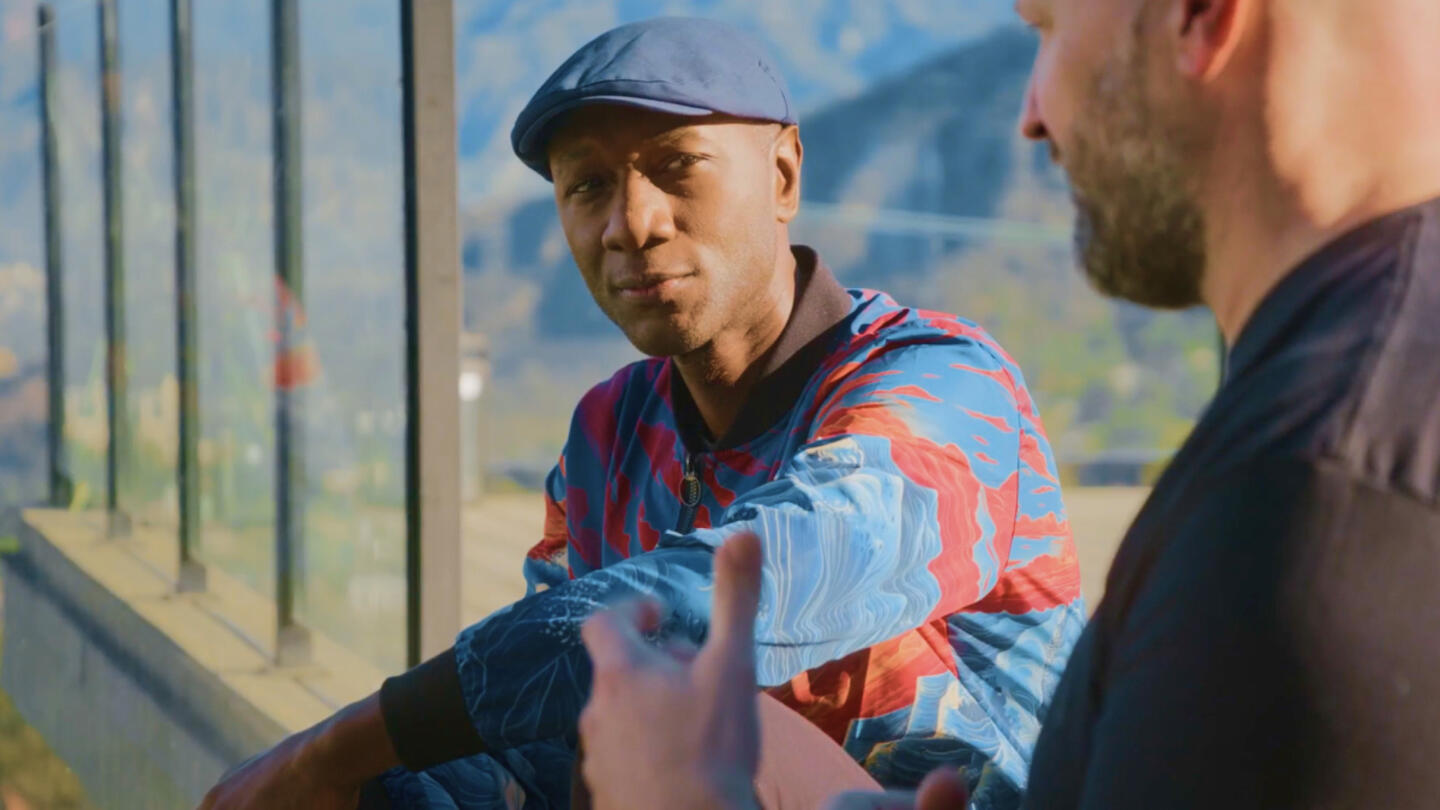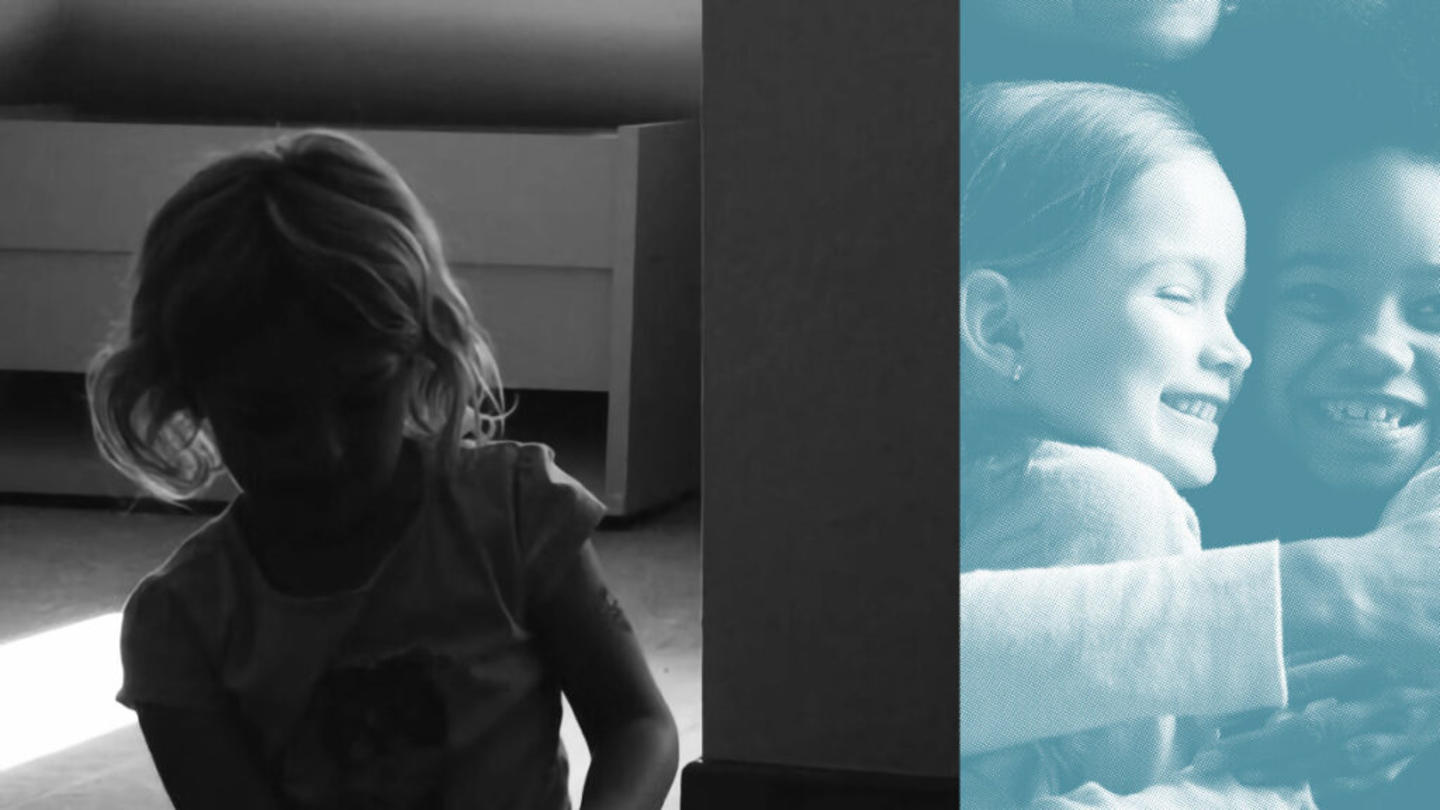During the 15 years Katie Nzekwu of Found Village worked in social services, she saw something that troubled her.
"You'd leave them and you think that they're moving on and you celebrate them graduating from the programs," she says. But these happy endings often became sad beginnings when she'd learn later that these same kids were in jail or even killed. Many were in positions "worse than when they'd left the program." Katie wanted to change that.
While working at a large nonprofit in Cincinnati, Katie met with her colleagues and the foster youth they served. Together, they realized the crucial missing piece in programs that provide resources and support: No one was treating the youth like individuals. Instead, they were assessed as data points, with their progress measured by uniform metrics, rather than on more fundamental issues such as how they're feeling and the community they had around them.
The next day, she started asking questions about their lives, their sleep patterns, and their home life. Their answers were largely the same, Katie remembers: "I don't have friends. I go to behavioral school and live in a group home. I don't sleep. People steal my things. I feel unsafe in my environment." As for asking each child about their hopes for the future: "Blank stares."
Once she understood more, she saw solutions where others saw roadblocks.
"I put together a pilot program that addressed the mind, body, and spirit," she says, describing Found Village, a Cincinnati-based organization founded in 2016 that focuses on using the power of strong family-like relationships to help youth in the child welfare system transform their lives. Their coaches journey with young people and act as bridges to other safe adults and positive peer relationships, bringing a village in to support young people and be a family for foster youth who feel as if they don't belong.
It's a support system designed to last for years, and to transcend into empowering each young person to find people who are with them for life.
Foster youth resources that focus on the individual
Ignoring youths' needs and goals as individuals leaves them without the support system necessary for long-term, sustainable growth after they age out of the foster care system.
Take Mark, for example. He's leading a productive life now, but he started bouncing around the foster care system starting at 7 years old. On his 12th placement he was suspended from school for disrupting a classroom. He struggled with aggression and fighting, and Katie and her team knew if they weren't able to break through to him, he would end up back in juvenile detention.
"He just sat there with his head down the whole meeting, and about halfway through I looked over at him and I was like, 'Hey Mark, look up at me," Katie remembers. "And I just said to him, 'What do you need to be healthy?' He stared at me for what must have been a full minute and said, 'I have no idea.'"
Mark's story highlights the immense challenge youth face in the foster care system.
As of October 2021, there are currently over 391,000 youth in the U.S. foster care system, with a median of nearly 15 months spent in care. Increasingly, foster youth are spending years in care, often transferring through multiple homes. In 2021, the U.S. hit the lowest number of adoptions out of foster care since 2015, continuing a four-year downward trend.
This lack of stability and a long-term community leads to issues. For those who leave the system without having found a permanent family, only 50% are employed by age 24; more than one in five will become homeless at age 18; and only 58% will graduate from high school by age 19.
Found Village's focus on relationships helps foster youth stay out of poverty. In the current system, many youth report that they do not consider their foster parents to be their "support circle." On their end, foster parents often aren't aware of resources available to youth upon exiting the system, leading to a greater chance of youth being dependent on crime or other high-risk behavior to get by.
"You have to trust people and you've got to have someone who helps you take advantage of the weak ties, because that is what every service system is set up to be: weak ties. We need these supports. But for them to stick, we must come in and build strong ties. When we do, we are able to help them bridge to the weaker ties and build a wider community and network because we get to journey with them along those processes."
Community is the most important of the foster youth resources
Community is the foundation and core of Found Village, but what they're really building is independence and empowerment in each young person who has experienced foster care.
Found Village addresses an important age gap in foster care: though the system often leaves youth on their own after they turn 18, Found Village starts with kids who are 13- -years-old and stays with them as they transition into their young adult lives. There are currently 67 kids in the program, which has worked with 120 youth since it formed. Half the kids currently enrolled have been there three or more years, and the engagement with Found Village lasts until age 25.
Found Village starts with connecting young people with a paid and trained team of coaches who build strong ties, before growing into a wider multi-person network of support. After first meeting basic needs (stable and safe housing, clothing, and food), they are able to move on to develop stability, relationships, and support.
Coaches, mentors, and peers work together to establish trust, security, belonging, love, and self-esteem. With this as a foundation supporting them, they are able to take the time to reflect on their goals, strengths, and hopes to eventually reach their full potential.
"Everybody says they do relationships, but they do not in the way that we do relationships with strong ties," Katie says. "If they get a flat tire, we're their first call. If they have an issue, we are the people that they go to."
Sign up for the Strong & Safe Communities newsletter for stories, ideas, and advice from changemakers working with their neighbors to address the biggest problems we face.
Found Village develops innate potential
Stable, long-term support systems allow foster youth the time, safety, and encouragement to discover their needs, wants, and interests. These relationships don't create those individual traits — rather, they help foster youth to discover strengths they had all along.
"Young people have the things that they need inside of them," Katie says. "Empowerment for us is not giving them something, it's helping them unlock the things that are already within them."
Because of this, "success" at Found Village isn't measured by traditional metrics. Instead, Found Village looks at the entire, holistic person, and uses the development of a kid's sense of self, relationships, communication skills, and optimism as metrics of success. They also evaluate themselves by asking the youth they serve how they can continuously improve.
"We look at success four ways," Katie says. "How are we contributing to your self-esteem? Your sense of value and seeing yourself in your fullness, so that you see that you have value and something to offer."
Found Village isn't just aiming to help secure a youth's first job or apartment. They're hoping to build something much bigger: individuals with a sense of purpose and inner strength, and who share their experience and drive transformational change within the child welfare system and communities to support more young people this way.
What's next for Found Village
Of the many young people Found Village has worked with, 90% moved into employment or post-secondary education after high school; 76% transitioned from behavioral school to traditional school; 89% experienced a decrease in instances of psychiatric hospitalization; and 70% have stayed reunited with their families after exiting the foster care system.
Youth served by Found Village also report increasing their ability to set and meet goals; that they have a greater sense of belonging and safety; and that their friendships and relationships with family are expanding and improving.
"Our youth report they have plans and dreams for their future, and feel hopeful to be able to achieve them because of this community of support," she says. "The feedback from young people around how Found Village has supported them to transform their life reads very similar: 'They don't give up on you;' 'They are always here when you need support;' 'They really care about you;' 'They believed in me, which helped me believe in myself.'"
This is true of John, too.
"John reports that Found Village has helped him transform his life, and that helping him overcome his anger has been the biggest gift we have given him," Katie says. "We thought he would mention his other accomplishments like getting a car, an apartment, completing a post-secondary training or talks about his longtime girlfriend that he plans to marry and build a family with. But it was the anger that was holding him back and these things happening as a result of working through all that pain."
Found Village hopes to close on a building within three years that will become a Youth Transformation Center.
"We want to create a hub in our community where we get to lead and facilitate around best practices, true transformational approaches," says Katie. "We want to host all the amazing organizations who are serving this 13 to 25 population so that we can really begin to generationally change the scope of our cities and create a more collaborative social sector. We believe this is how we ensure that our young people and future generations are no longer system-involved and can live a full life."
***
Found Village is supported by Stand Together Foundation, which partners with the nation's most transformative nonprofits to break the cycle of poverty.
Learn more about Stand Together’s efforts to build strong and safe communities and explore ways you can partner with us.

At this ‘resort,’ children with intellectual disabilities are seen as gifts to be celebrated and loved.

Veterans experience loss when leaving service. Could this be key to understanding their mental health?

The Grammy-nominated artist is highlighting the stories we don’t get to hear every day.

With his latest project, Blacc isn’t just amplifying stories — he’s stepping into them
